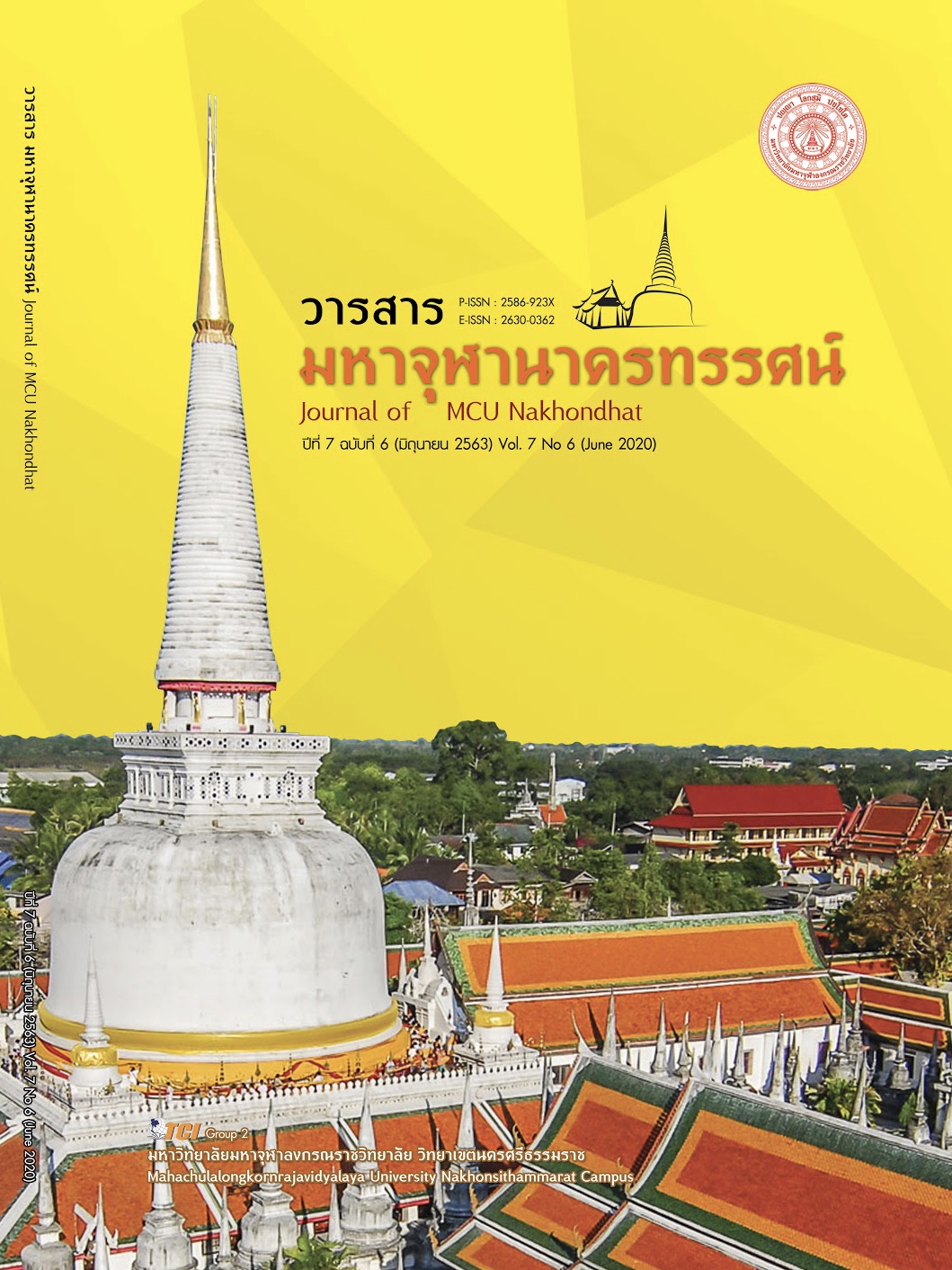GUIDELINES FOR ACADEMIC ADMINISTRATION OF PRIVATE SCHOOLS AFFILIATED WITH MAHA SARAKHAM PROVINCIAL EDUCATION OFFICE USING THE PROFESSIONAL LEARNING COMMUNITY APPROACH
Main Article Content
Abstract
The objectives of this research were 1) to study the current state, desired state, and needs in academic administration of private schools affiliated with Maha Sarakham Provincial Education Office using the professional learning community approach and 2) to study guidelines for academic administration of private schools affiliated with Maha Sarakham Provincial Education Office. The samples included 265 administrators and teachers. It also comprised the open – ended questions. The questionnaire was tried out with other 30 administrators and teachers who were not included as samples in this study in order to verify the quality of questionnaire, revealing that its discrimination index ranged from .67 – .85 and its reliability was .94. The statistics, which were used to consisted of mean, standard deviation, and Priority Needs Index. In terms of guidelines data from schools with the best practice was analyzed.
Findings indicated that: the current state of academic administration in overall and in each aspect was at the high level, while the desired state was at the highest level. It was recommended that in the aspect of school curriculum development, administrators and teachers should collaboratively formulate a plan by building PLC for developing a school curriculum based on visions, missions and goals of a school. In the aspect of learning process development, teachers should develop themselves on the techniques for effective and student – centered learning management. In the aspect of measurement, evaluation and transferal of learning outcome, a meeting between administrators and teachers should be organized by building PLC in order to determine regulations or ways of practice about the measurement and evaluation by the school. In the aspect of research for educational quality development and the teachers should be promoted to conduct at least one classroom research project per a learning area in a semester. Moreover, the results of classroom research should be utilized for improving the learning management together with inviting experts to give advices to individual teachers. Lastly, in the aspect of educational supervision, a brainstorming activity based on PLC approach should be conducted to improve the internal supervision.
Article Details
References
กระทรวงศึกษาธิการ. (2551). หลักสูตรแกนกลางการศึกษาขั้นพื้นฐานพุทธศักราช 2551. กรุงเทพมหานคร: กระทรวงศึกษาธิการ.
บุญชม ศรีสะอาด. (2556). การวิจัยเบื้องต้น. (พิมพ์ครั้งที่ 9). กรุงเทพมหานคร: สุวีริยาสาส์น.
ปรียาพร วงศ์อนุตรโรจน์. (2544). การบริหารงานวิชาการ. กรุงเทพมหานคร: พิมพ์ดี.
พิชิต ฤทธิ์จรูญ. (2544). แนวทางการวิจัยเพื่อพัฒนาการเรียนรู้ บทบาทครูกับการวิจัยในชั้นเรียน. กรุงเทพมหานคร: พริกหวานกราฟฟิคจํากัด.
วรลักษณ์ ชูกําเนิด และคณะ. (2557). รูปแบบชุมชนการเรียนรู้ทางวิชาชีพครูสู่การเรียนรู้ในศตวรรษที่ 21 บริบทโรงเรียนในประเทศไทย. วารสารหาดใหญ่วิชาการ, 12(2), 123-134.
สมนึก ภัททิยธนี. (2553). การวัดผลการศึกษา. มหาสารคาม: ภาควิชาวิจัยและพัฒนาการศึกษา คณะศึกษาศาสตร์มหาวิทยาลัยมหาสารคาม.
สำนักงานคณะกรรมการส่งเสริมการศึกษาเอกชน. (2554). พระราชบัญญัติโรงเรียนเอกชน พ.ศ. 2550 แก้ไขเพิ่มเติม (ฉบับที่ 2) พ.ศ. 2554. กรุงเทพมหานคร: โรงพิมพ์ ส.ก.ส.ค. ลาดพร้าว.
สำนักงานศึกษาธิการจังหวัดมหาสารคาม. (2560). แผนพัฒนาประจำปีงบประมาณ 2560 ศธจ. มหาสารคาม. มหาสารคาม: สำนักงานศึกษาธิการจังหวัดมหาสารคาม.


